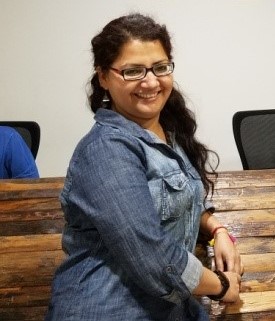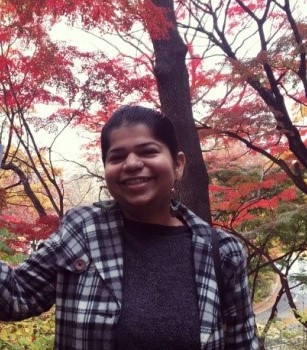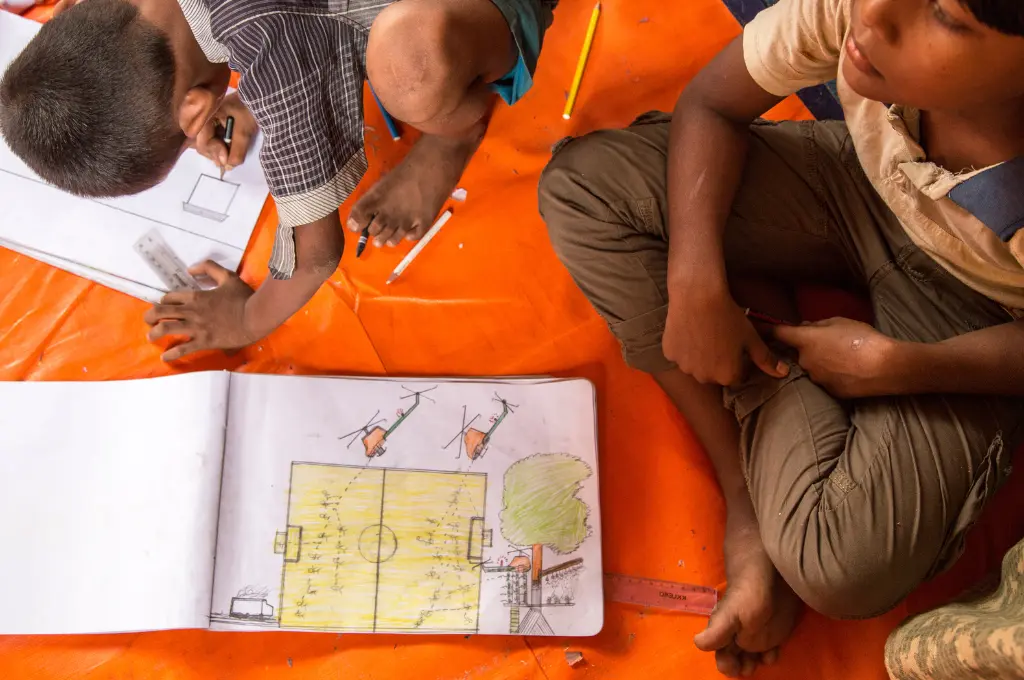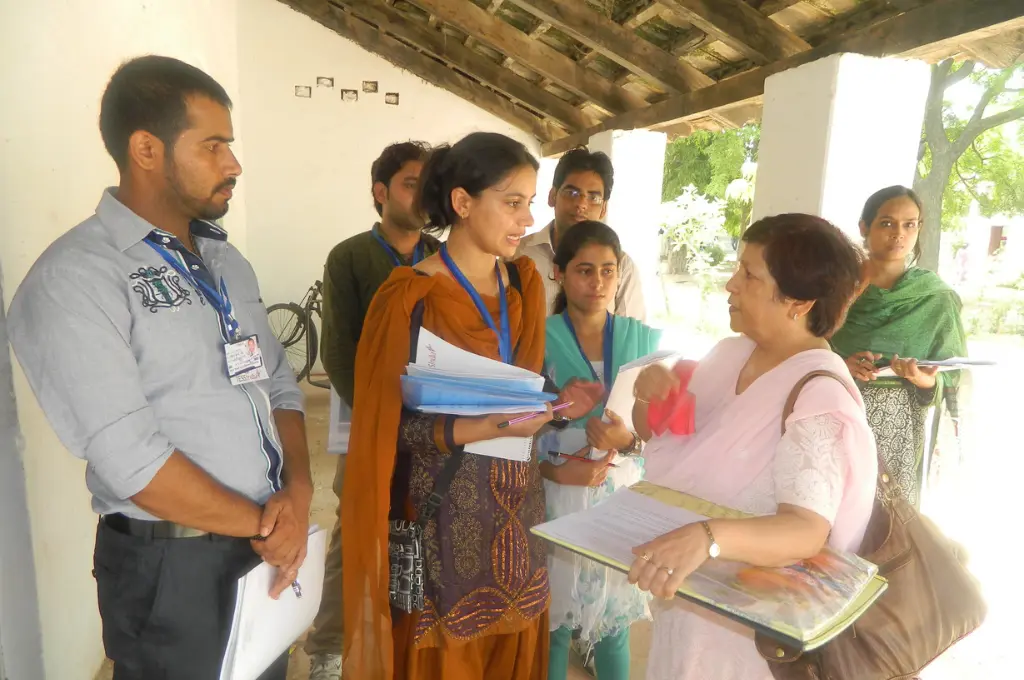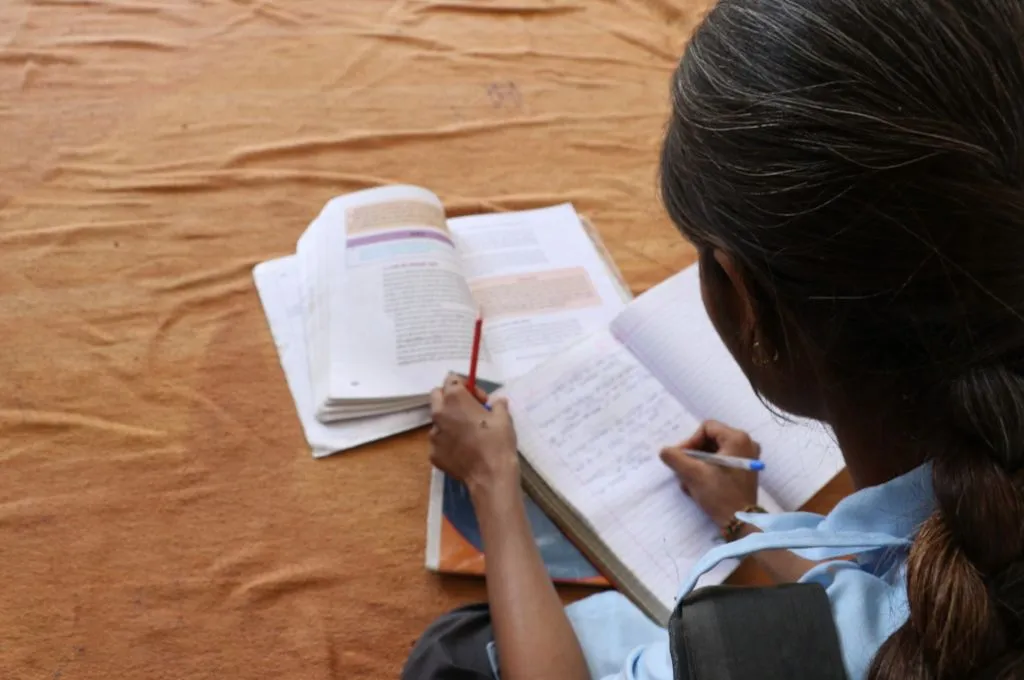Jagori, where we work, is a feminist organisation that grew out of the women’s movement of the 1980s. Over the years we have worked with marginalised women in rural and urban communities across India, primarily focusing on violence against women and women’s rights. Here are some of the lessons we have learned.
Our philosophy is to build leadership within the community. To do this, we start by using collective processes to develop an understanding of the communities’ needs. We then provide them with the tools, technical support, and guidance they need to build leadership skills.
By building leaders within communities, we are ensuring that our programmes can eventually be handed back to them, and run independent of us.
It is also important to remember who these leaders are. Just as the leaders of the Dalit movement will be Dalits, and queer people lead the LGBTQ+ movement, women must lead the women’s movement. There will be others who join as allies, but women need to be at the forefront – they must feel empowered to speak up and be the voice of the movement.
Sometimes when working with communities it is easy to get swayed from the purpose of your organisation.
For example, our mission at Jagori is to empower and inform women who are disenfranchised. Despite this, we once found ourselves in a situation where we had to pull a very successful programme out of a BPL (Below Poverty Line) community. Here’s what happened: A few years ago, we started working in a BPL community where the women were predominantly employed as domestic workers. After we started working with them, we realised that these women were already quite vocal, had access to resources, and knew how to negotiate to improve their living conditions. We had wrongly assumed that since it was a BPL community, the women would be marginalised and would benefit from our efforts.
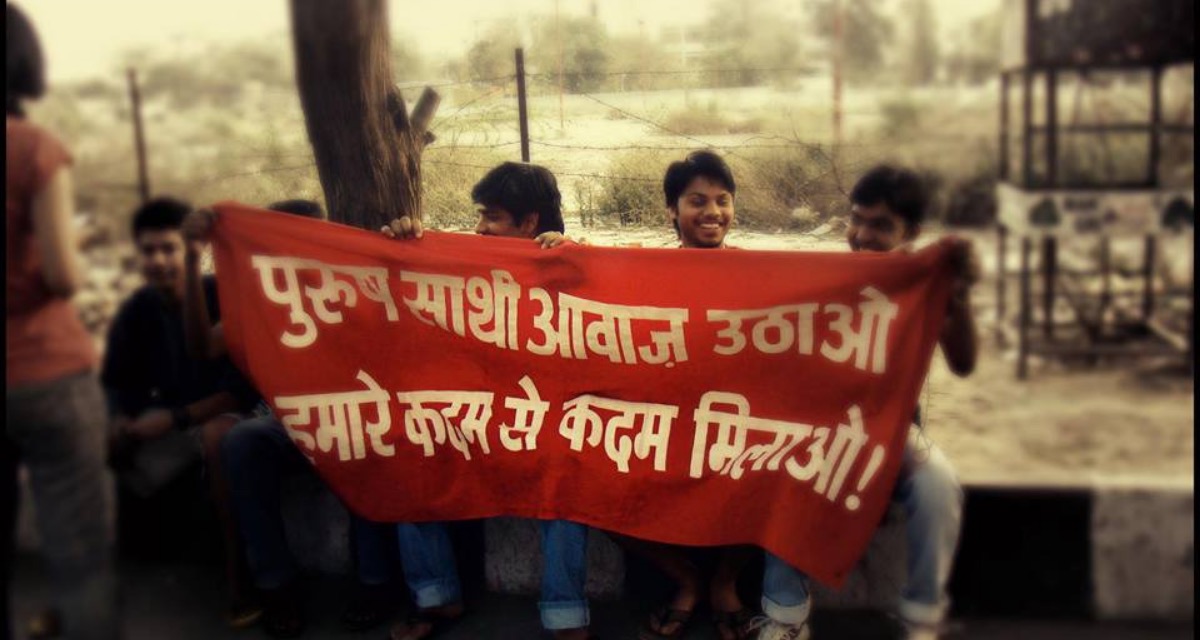
Entering a community to work on issues that nobody wants to talk about can be met with a lot of backlash. | Picture courtesy: Jagori
It would have been very easy to show change, in a short time duration in that community, but our vision is to create change in the most marginalised communities. And to stay true to that vision, we had to withdraw from this community so that we could focus our resources where they were most needed.
Related article: Ordinary people, extraordinary power
When working to change mindsets amongst communities, it is important to remember that you’re not challenging people’s experiences or identities. What you are challenging are their thoughts and opinions. And to do that effectively, it is very important to create a space where people can voice those opinions, disagree with each other, and even criticise you.
Something important to look out for when doing this work is whether people are disagreeing with you. If they’re not, something might be wrong.
To change mindsets, an inclusive, critical, and reflective space – for all participants – is a must.
For example, in one of our trainings on developing feminist leadership, we noticed that most of the men in the group (who were a minority), were readily agreeing to everything the facilitators said. Only when we pushed further did we realise that their silence was a result of them not feeling comfortable enough to speak openly and honestly.
To change mindsets, an inclusive, critical, and reflective space – for all participants – is a must.
We work with the police and train them to respond to instances of violence in communities. Before our initial interactions with the police force, we thought we would sit together with them and discuss the issues, as we do when we work in communities. But we were confronted by many challenges. For example, the police often lack a gender-sensitive approach. Their initial reaction was to dismiss domestic violence as an issue that “is not a big deal” and something that “happens all the time”. Violence occurs frequently and consequently, it is often normalised. We challenged this attitude and even though we faced a lot of push back, over time, we were able to influence their mindsets to recognise that domestic violence is a serious issue.
There are also many hierarchies at play when working with the police, and we spent a considerable amount of time understanding how best to navigate them. In our work, we interact with beat constables, who do not often have the authority to make the decisions that we seek of them. This was holding us back. To address this, we started involving the local police in the awareness campaigns that we held in communities. We also started participating regularly in their thana-level committee meetings and at civil society meetings convened by the Special Police Unit for Women and Children (SPUWAC). This helped to open the channels of communication and build trust.
We learn on the go, and these experiences taught us a lot about working with formal systems and institutions while working to create change in communities.
Entering a community to work on issues that nobody wants to talk about (like domestic violence, abuse, etc.) can be met with a lot of backlash. As an outsider, you are navigating years of patriarchy, and you are doing it in a place that is outside your comfort zone.
For example, in 2012-13 when the Nirbhaya rape incident occurred, there was a deafening silence in one of the communities we worked with – women found it difficult to express their fears and men refused to participate in a conversation about rape in a public space.
If we wanted to challenge patriarchy, we needed to create awareness among the people and the institutions that uphold it.
In this situation, we found it extremely difficult to enter these spaces and talk to people about violence and safety. At times, we were even afraid to use the word ‘rape’ because of the amount of backlash it invited.
Despite this hesitation and sometimes fear, it is important to find ways and support systems that allow you to continue your campaign. And, in our experience, the people who need your support will stand with you.
Related article: We need to talk about men
For many years, Jagori did not work with men at all. Over time we realised that while we were talking to women about violence and equal rights, if we wanted to challenge patriarchy, we needed to create awareness among the people and the institutions that uphold it.
So, we started working with men, and in doing so we learnt very quickly that men knew they had power, enjoyed wielding it and were unlikely to give it up. We were unsuccessful in our early attempts at engaging men and were disappointed and frustrated by the experience. But this pushed us to explore other approaches and we started working with young men and boys.
Having changed our approach once (to work with men), and again (to work with youth and boys), we are mindful of the impact these changes have – for instance, will young women be denied access to our spaces now that young men are also present in them?
So, while we remain open to tweaking our approaches, we also keep track of how those changes impact the work we set out to do, and how true it allows us to stay to our vision.


